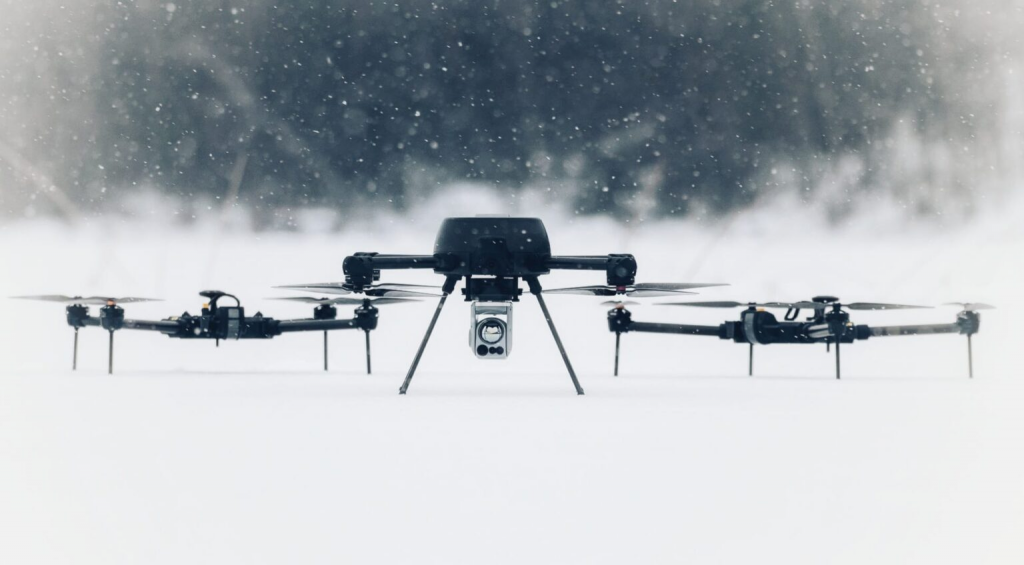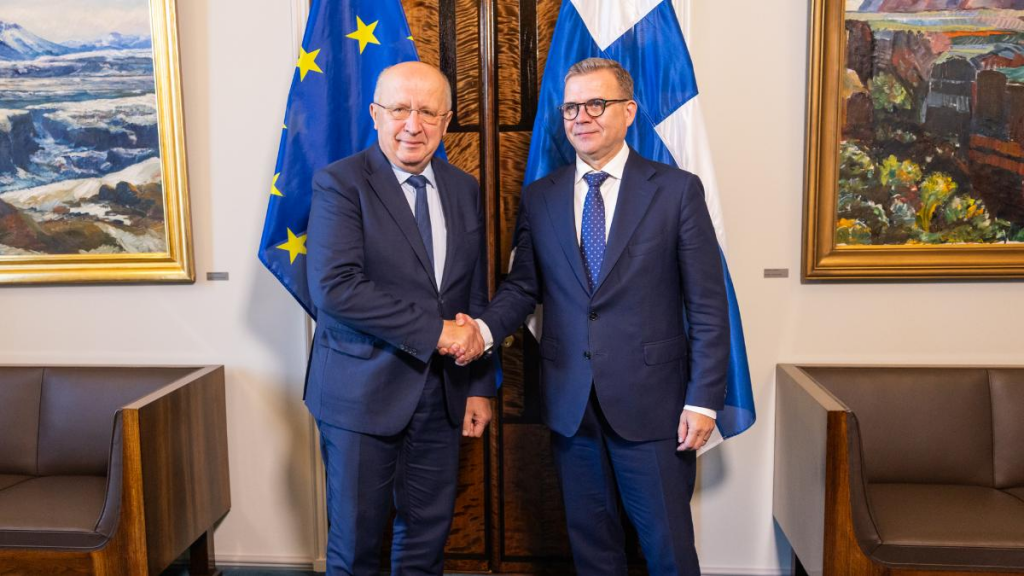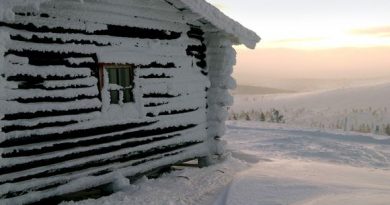Finland pushes EU drone wall as northern countries’ security investments expand

As Arctic states continue to expand surveillance across the polar region, Europe’s northern flank is preparing its own response, with Finland supporting a ‘drone wall’ on its eastern frontier.
Finnish Prime Minister Petteri Orpo and European Commissioner for Defence and Space Andrius Kubilius met in Helsinki on Friday, where the two discussed Finland’s role in shaping the project.
“I highlighted Finland’s views on our priorities for developing the drone wall,” Orpo said in a statement. “We were both in agreement that the drone wall should be built soon.”
The plan is part of the EU’s Eastern Flank Watch programme — a point Prime Minister Petteri Orpo used to stress Finland’s place on the eastern front line of Europe’s security.

“We in Finland, together with the Baltic States and Poland, are defending all of Europe from here at its eastern border,” Orpo said.
“It is here that we most need solidarity in the interest of security. I believe this is also understood elsewhere in Europe.”
Drones becoming key security investment for northern nations
The Finnish discussions come as other northern nations continue to invest in drone technology to operate in their remote polar regions.
This summer, Denmark signed an agreement to purchase four long-range drones through NATO’s Support and Procurement Agency to bolster surveillance over the Arctic and North Atlantic. Danish Defence Minister Troels Lund Poulsen said the acquisition would allow Copenhagen to strengthen intelligence gathering across Greenland and the Faroe Islands, regions that have drawn heightened attention since Russia’s invasion of Ukraine.
Norway is also investing in aerial surveillance, announcing in 2024 that it was establishing an Arctic base for long-range drones at Andøya, 300 km north of the Arctic Circle.
Across the Atlantic, Canada is also investing in drones to bolster Arctic surveillance, with the government indicating it’s examining the technology to strengthen security and monitor the North.
This month, drone incursions have shut down airports in Poland, Norway, and Denmark. On Friday, Sweden’s public broadcaster SVT reported multiple sightings of suspicious drones over the country’s Karlskrona archipelago a few kilometres from a naval base.
Comments, tips or story ideas? Contact Eilís at eilis.quinn(at)cbc.ca
Related stories from around the North:
Canada: Canadians in North see U.S. as Arctic threat on par with Russia: survey, Eye on the Arctic
Denmark: Denmark flexes in Arctic with Greenland drills, signaling ongoing security push, Eye on the Arctic
Finland: Finnish Air Force hosts large-scale training exercise, including in North, Yle News
Iceland: Europe’s Von der Leyen strengthens Arctic security ties with Iceland during visit, Eye on the Arctic
Norway: Arctic Security Conference: “We are already at war in the Arctic,” Blog by Mia Bennett
Russia: Russia trains coastal attack scenario 30 km from border with Norway, The Associated Press
Sweden: Europe and the US stand united ahead of Alaska meeting: Swedish PM, Radio Sweden
United States: Russian warplanes detected flying near Alaska for ninth time this year, US military says, Eye on the Arctic



